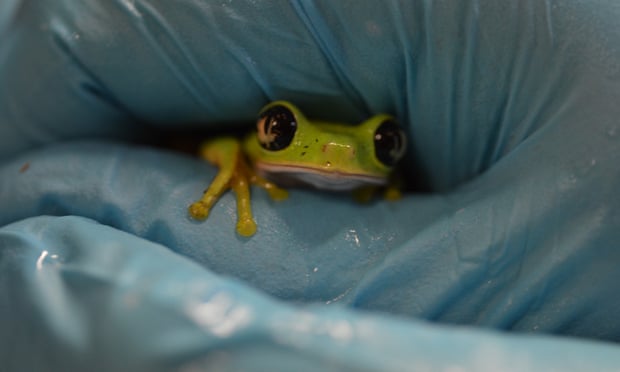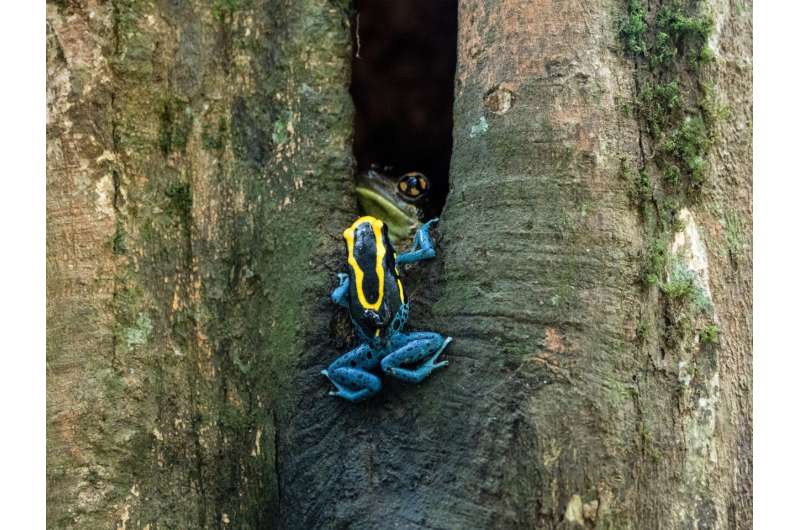Artículo Invitado
1. Ecología de la reproducción de los saurios ibéricos. Pedro Galán. PDF
Historia Natural
2. Communal behaviour by Basiliscus plumifrons in a Manicaria swamp forest, northeast Costa Rica. Todd R. Lewis & Paul B.C. Grant. PDF
3. Infestación múltiple de Mauremys leprosa por nematodos. Alfonso Villarán & Juan Domínguez. PDF
4. Comensalismo entre lagarto gigante de El Hierro (Gallotia simonyi) y gaviota patiamarilla (Larus michahellis) en el roque Chico de Salmor. Felipe Siverio & Pedro Felipe. PDF
5. Albinismo total de Coronella girondica en la Península Ibérica. Albert Martínez-Silvestre, Joaquim Soler, Josep Mª Gener, Miguel García & Carlos Martí. PDF
6. Depredación de un adulto de tritón palmeado (Lissotriton helveticus) por tritón jaspeado (Triturus marmoratus). Ariñe Crespo-Diaz & Iñaki Sanz-Azkue. PDF
7. Tendencias a medio plazo de una población de lagartija cenicienta (Psammodromus hispanicus) en España central. Pablo García & Isabel Mateos. PDF
8. Comportamiento de huida y tiempo de permanencia bajo el agua de Lacerta schreiberi. Pedro L. Hernández-Sastre, Enrique Ayllón & Miguel A. Carretero. PDF
9.Aportaciones al estudio de la alimentación de Testudo hermanni hermanni en el Parque Natural de la Sierra de Montsant. Anabel Muñoz, Joaquim Soler & Albert Martínez-Silvestre. PDF
10. Artópodos encontrados en restos fecales de Waglerophis merremi: ¿culebra insectívora?. Pier Cacciali, PDF
11. Depredación de culebra de escalera Rhinechis scalaris sobre una camada de topillo campesino (Microtus arvalis). Gonzalo Alarcos, Fabio Flechoso, Andrés Rodríguez-Pereira & Miguel Lizana. PDF
12. Limb abnormalities in the palmate newt, Lissotriton helveticus (Caudata: Salamandridae). Francisco J. Diego-Rasilla. PDF
13. A case of cannibalism in Pleurodema cinereum. Oliver Quinteros-Muñoz & Rodrigo Aguayo. PDF
14. Albinismo en estado larval de Trachycephalus venulosus (Anura: Hylidae). Martha Motte & Pier Cacciali. PDF
Distribución
15. Anuran studies from Tiaret region, north-west of Algeria. Pau Brunet, Delfí Sanuy, Neus Oromí, Mohammed Ait Hammou & Walid Dahmani. PDF
16. Evidencia de la reproducción otoñal del sapillo pintojo ibérico (Discoglossus galganoi) en España central (Salamanca). Pablo García & Isabel Mateos. PDF
17. Distribución y diversidad de anfibios en la Sierra Norte de Sevilla. Wouter de Vries, Adolfo Marco & Arturo Menor. PDF
18. Nuevos datos sobre presencia de galápagos en Salamanca y Zamora, y de otras especies de herpetofauna. Gonzalo Alarcos, Jaime Madrigal, Manuel Eloy Ortiz-Santaliestra, María José Fernández-Benéitez, Miguel Lizana & Pablo García. PDF
19. Primeras citas de Acanthodactylus erythrurus en Segovia y detalles de su distribución por la mitad occidental de la provincia. Teófilo Martín, José Luis González & Jesús Tapia. PDF
20. Presencia de Psammophis schokari en Melilla. Manuel Tapia. PDF
Conservación
21. Peces exóticos de la familia Centrarchidae, un peligro para Natrix Maura. Gonzalo Alarcos, Francisco Álvarez-Collado, Manuel Fabio Flechoso, Jaime Madrigal & Miguel Lizana. PDF
22. Seguimiento de una comunidad de anfibios a partir de la creación de una charca en Toro (Zamora). Abel Bermejo-García. PDF
23. Egg failure of Rana temporaria clutches from the N.E. of Galicia (Spain). Cesar Ayres, Ricardo Ferradas & Pablo Xesteira. PDF
24. Utilización de un modelo simple de remoción para estimar el tamaño poblacional en larvas de anfibios. Arturo I. Kehr, Marta I. Duré & Eduardo F. Schaefer. PDF
25. Depredación del galápago americano (Trachemys scripta) sobre puestas de carpa (Cyprinus carpio) en Cataluña. Albert Martínez-Silvestre & Joaquim Soler. PDF
26. Depredación por gatos de Lagartos Gigantes de La Gomera, Gallotia bravoana (Sauria; Lacertidae). Oscar M. Afonso & José A. Mateo. PDF
27. Un polizón en un saco de patatas: transporte accidental de Mauremys leprosa desde Sevilla a Cantabria. Juan M. Gómez de Berrazueta, Ana M. Fernández, César D. González & Andrea González. PDF
28. Probables casos de parasitismo de Lucilia bufonivora (Diptera: Calliphoridae) en anuros del norte ibérico. Alberto Gosá, Xabier Rubio, Mikel Etxaniz, Alberto Luengo, Luis García-Cardenete & Manuel Océn. PDF
29. Depredación de Natrix maura por Sander lucioperca en el SO de la Península Ibérica. José L. Pérez-Bote & Rafael Roso. PDF















